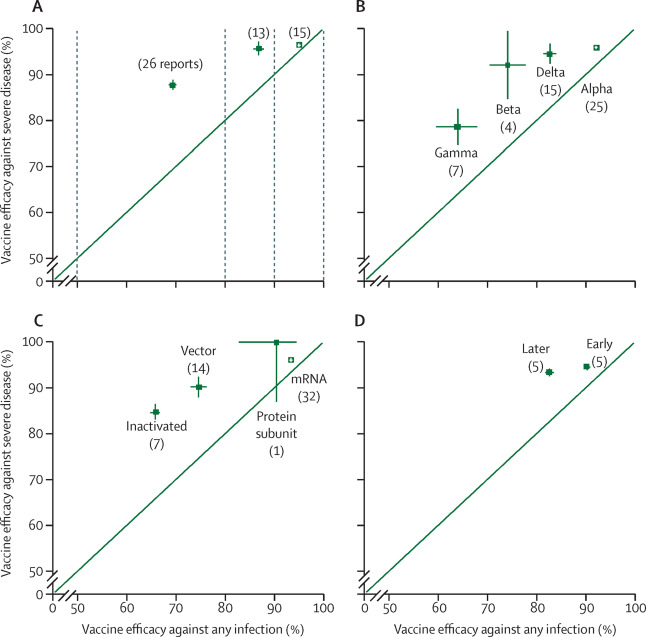That logic only works if you assume that the previous year was representative of maximum mortality. Which it wasn't, for several reasons - infection rates didn't start spiking until March/April (so it wasn't a full year), lockdowns and masking limited the spread, and people were just generally more cautious into late 2020.
You might want to read this John Hopkins study.
An analysis of each of these three groups support the conclusion that lockdowns have had little to no effect on COVID-19 mortality. More specifically, stringency index studies find that lockdowns in Europe and the United States only reduced COVID-19 mortality by 0.2% on average. SIPOs were also ineffective, only reducing COVID-19 mortality by 2.9% on average. Specific NPI studies also find no broad-based evidence of noticeable effects on COVID-19 mortality.
First of all, I wouldn't call a 15% drop in mortality "nearly the same rate".
I see you're using relative percentages instead of absolutes. Might that be because the difference between 68.26 and 54.26 PER MILLION is an absolute drop of just 0.001%?
Second, no, I don't find it odd. Lots of people did not get COVID boosters - uptake was only about 30% for fully-vaccinated people - so the benefits of the vaccine were a bit muted and late 2021/early 2022 was when the Omicron variant, which was more transmissible, became prevalent.

So the vaccines aren't effective unless people are perpetually boosted? That's your explanation for why there was an absolute reduction in morality of just 0.001%?
Also, perhaps you are unaware, but two of the top vaccine regulators at the FDA resigned in protest over the political pressures to approve boosters for everyone. They wrote this in the Lancet in October 2021.
Current evidence does not, therefore, appear to show a need for boosting in the general population, in which efficacy against severe disease remains high. Even if humoral immunity appears to wane, reductions in neutralising antibody titre do not necessarily predict reductions in vaccine efficacy over time, and reductions in vaccine efficacy against mild disease do not necessarily predict reductions in the (typically higher) efficacy against severe disease.
A new wave of COVID-19 cases caused by the highly transmissible delta variant is exacerbating the worldwide public health crisis, and has led to consideration of the potential need for, and optimal timing of, booster doses for vaccinated populations.1 Although the idea of further reducing the...
www.thelancet.com
Your assertion that motility was high in February 2022 because the vast majority of people chose not to be boosted is not supported by any evidence.
People were also getting much more complacent about going to public gatherings and masking.
Likewise, there is no evidence that masking did anything at all to slow spread of the disease. Here is what the Cochrane Review has to say.
Medical or surgical masks
Ten studies took place in the community, and two studies in healthcare workers. Compared with wearing no mask in the community studies only, wearing a mask may make little to no difference in how many people caught a flu-like illness/COVID-like illness (9 studies; 276,917 people); and probably makes little or no difference in how many people have flu/COVID confirmed by a laboratory test (6 studies; 13,919 people). Unwanted effects were rarely reported; discomfort was mentioned.
N95/P2 respirators
Four studies were in healthcare workers, and one small study was in the community. Compared with wearing medical or surgical masks, wearing N95/P2 respirators probably makes little to no difference in how many people have confirmed flu (5 studies; 8407 people); and may make little to no difference in how many people catch a flu-like illness (5 studies; 8407 people), or respiratory illness (3 studies; 7799 people). Unwanted effects were not well-reported; discomfort was mentioned.

www.cochrane.org
To tie this back to the OP, COVID is another issue where Democrats are out-of-touch with the electorate. By not only mandating these foolish and ineffective measures but then doubling down and attempting to defend them against all empirical evidence that demonstrates their inefficacy, they have alienated a large portion of independent voters.





